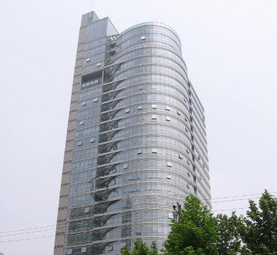Listen to part of a lecture in a music history class.
So, I just finish reviewing your papers on the influence of nationalism on the composers' music.
And initially, I was surprised that none of you chose to write about Bella Bartok.
That is until I remembered that we haven't had a chance to discuss him in the class yet.
He was a wonderful and ground-breaking composer.
Bella Bartok was a Hungarian whose life stretched from the late 19th century to the middle of 20th century.
But he was not a fan of the romantic style of music that was popular in his homeland during his youth.
Wait, Hungary wasn't a country in 1900s, was it?
You're right, I should have been clear.
Bartok was born in Austria-Hungary, a nation that broke apart when he was 40 years old.
Actually the town where he was born is presently part of Romania.
The political history of that region is complex.
Suffice to say Bartok is generally known as a Hungarian composer.
So, during Bartok's youth, the music played in the concert halls of the Austria-Hungary was dominated by romantic pieces by mostly German composers.
We discussed the romantic style last week.
These pieces were long and lyrical. They were meant to have a sort of grandeur about them.
And in the early 1900s,composers who worked in the romantic style were the most popular in Austria-Hungary.
But Bartok, he was part of the musical community that was trying to change this.
And it led him to, well, the first thing it did was lead him to travel.
He looked to the countryside for the music of the farmers and the people who lived in the small towns.
And their music, well, you can say he discovered the music that was popular in those areas.
What do you mean?
Well, all the music we've been talking about the past few weeks it really was all in the cities.
That's where the composers and the orchestras were.
Out in remote areas of the countryside in rural locations, music was more traditional.
The same song was enjoyed by previous generations.
Bartok went out, he travelled to a significant portion of eastern Europe actually.
He roamed the countryside and listened to the music heard in the small towns and in all sorts of celebrations.
He attended weddings, dances and religious ceremonis where he heard a very different sort of music from the romantic stuff being played in the concert halls in the cities.
The music he heard is what we were considered folk music.
And any of those same songs played in the concert halls?
No. At first, he went around to document the folk music.
He really wanted to make sure that folk songs were written down before they disappeared.
In fact, Bartok didn't start out the trip thinking of himself as a composer.
He was an ethnomusicologist, and he studied the traditional music of the region.
But it turns out that what would later have a notable influence on the European music on the whole, was the way Bartok used the elements he heard in folk songs in his own compositions.
He adopted a number of elements from what he heard, like unusual rhythms and he liked to use glissando as his hallmark, which you probably got from listening to Croatian folk music.
A glissando is... well, I've got a recording of Bartok here.
Let's wait until the music is fresh in our minds.
Susie, do you have something you want to ask first?
Yeah. Before, you mentioned nationalism, and…
Ah, right! Yes. When Bartok had his new pieces performed, their folk music roots made them instantly popular.
It happened to be a time of strong nationalism in Austria-Hungary.
So his composition came just at the right time. It became very successful there.
Particularly, when Bartok's ballet The Wooden Prince opened, there was great excitement for music that included musical elements from local folk songs, music that reflected the region's musical traditions.
However, as popular as Bartok was in his homeland, he did not get much international recognition during his lifetime.

















 分享成功
分享成功

















草莓小菇凉:说的非常好,十分有道理,棒棒棒!
06-08 15:44:55